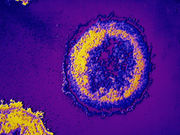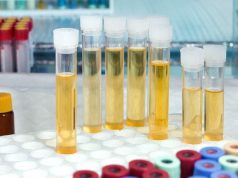High proportion of false-positive results and associated psychological harms with screening
TUESDAY, Dec. 20, 2016 (HealthDay News) — The U.S. Preventive Services Task Force (USPSTF) recommends against routine serologic screening for genital herpes simplex virus (HSV) infection in asymptomatic adolescents and adults, according to an final recommendation statement published in the Dec. 20 issue of the Journal of the American Medical Association.
Cynthia Feltner, M.D., M.P.H., from the University of North Carolina at Chapel Hill, and colleagues conducted a systematic review to examine evidence on the accuracy, benefits, and harms of serologic screening for HSV-2 infection in asymptomatic persons, including pregnant women, in order to support the updated USPSTF recommendation statement. Seventeen studies with 9,736 participants in 19 publications were reviewed.
The researchers found that serologic screening for genital herpes was associated with a high rate of false-positive tests, with 15,840 true-positive results and 15,960 false-positive results with use of the test at the manufacturer’s cut point in a population of 100,000 with HSV-2 prevalence of 16 percent. Serologic screening was associated with psychologic harms, including distress and anxiety that correlated with positive test results. Based on these findings, the USPSTF concludes that the harms outweigh the benefits of serologic screening for genital HSV infection in asymptomatic adolescents and adults.
“Despite genital herpes being common, testing is not generally helpful for people without symptoms, in part because early identification does not improve a person’s health as there is no cure for herpes,” Task Force member Ann E. Kurth, Ph.D., M.P.H., said in a statement.
Recommendation Statement
Evidence Review
Editorial
Copyright © 2016 HealthDay. All rights reserved.








